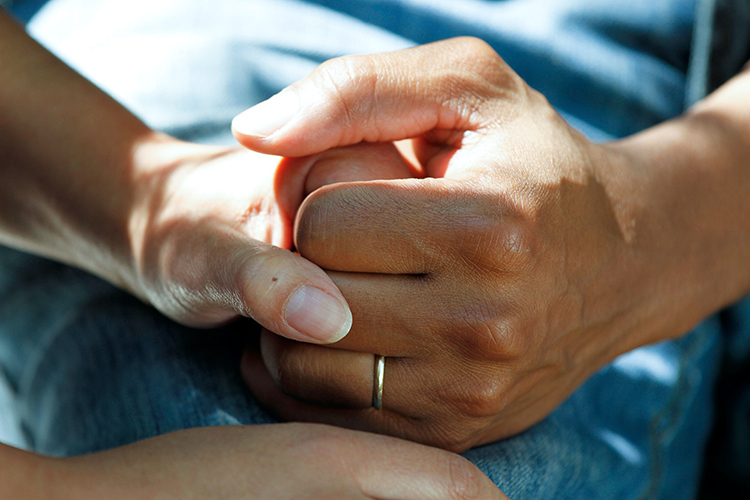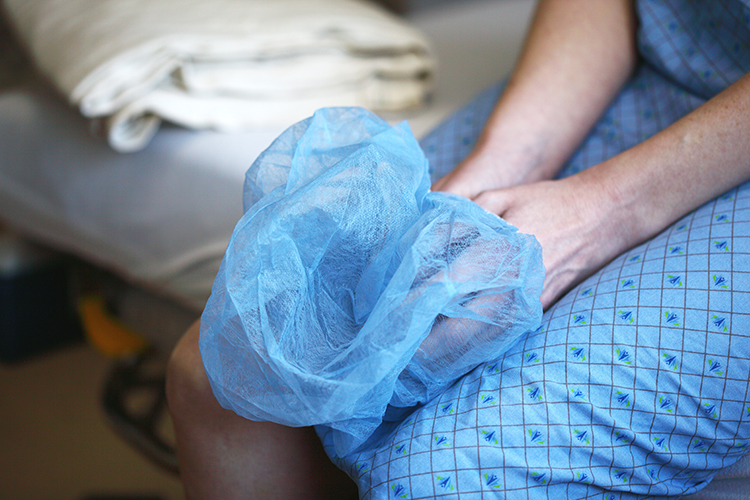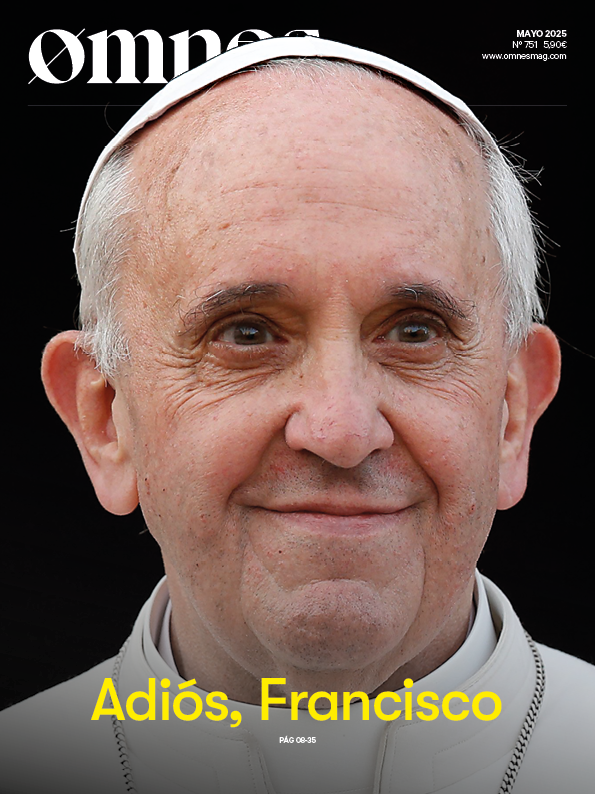The defense of the life of the most vulnerable, in this case the elderly and the sick, and the protagonism of families and society in education (the social demand), are principles that have come to the forefront of attention of the Spanish bishops, observing the speed with which the government coalition is promoting its social agenda.
-Text Rafael Miner
Indeed, these days in the Congress of Deputies the successive approvals of one of the objectives of the current parliamentary majority take place: the legal regulation of euthanasia, known by its promoters as "euthanasia". "death with dignityThe aim is to configure as the public provision, by the State, of an alleged "public service". "right to die".
The regulation of euthanasia by organic law must still pass through the Senate, but its processing continues with unusual speed, as if its approval were an endorsement. progressive to management, and without taking into account weighty arguments, such as the urgency of promoting palliative care in Spain, in accordance with European standards.
Processing without dialogue
"The processing has been carried out in a suspiciously accelerated manner, in a time of pandemic and state of alarm, without listening or public dialogue."The Spanish bishops denounced a few days ago in a Note, reported by this website. For the Spanish Episcopal Conference (CEE), "the fact is particularly serious, since it establishes a moral rupture; a change in the aims of the State: from defending life to being responsible for the death inflicted; and also of the medical profession, 'called as far as possible to cure or at least to relieve, in any case to console, and never to intentionally provoke death'".
In the letter, the bishops expressly added their support to the words of Pope Francis: "Euthanasia and assisted suicide are a defeat for everyone. The answer to which we are called is no never abandon those who suffer, never give up, but care and love in order to give hope".
On the occasion of the XXVIII World Day of the Sickthe Pope himself sent a letter to the professionals of the messagein which it can be read: "Dear health care workers, every diagnostic, preventive, therapeutic, research, treatment or rehabilitation intervention is aimed at the sick person, where the noun 'person' always comes before the adjective 'sick'. Therefore, let your action constantly keep in mind the dignity and life of the person, without giving in to acts that lead to euthanasia, assisted suicide or to ending life, even when the state of the disease is irreversible.".
Responsible decisions

Following the messages of Francis and the Holy See, the Spanish bishops issued their Note on very specific aspects: 1) "We invite to respond to this call with prayer, care and public witness. that favor a personal and institutional commitment in favor of life, care and a genuine good death in company and hope".. 2)"We ask those who have responsibility for making these serious decisions to act in conscienceaccording to truth and justice". Y 3) "We call Spanish Catholics to a Day of Fasting and Prayer on Wednesday, December 16, 2010.e, to ask the Lord to inspire laws that respect and promote the care of human life. We invite as many people and institutions to join this initiative".
The bishops recalled that the Vatican Congregation for the Doctrine of the Faith, "with the express approval of Pope Francis, published the Letter Samaritanus bonus on the care of persons in the critical and terminal phases of life. This text illuminates the reflection and moral judgment on this type of legislation. Also the Spanish Episcopal Conference, with the document Sowers of hope. Welcoming, protecting and accompanying in the final stage of this life, offers some clarifying guidelines on the issue".
The most vulnerable, disadvantaged
In a colloquium organized by ForumWordThe delegate of the Holy See to the World Medical Association, Pablo Requena, stated that, in his opinion, "It is not a question of right or left. Moreover, a person on the left should realize that the most vulnerable are going to be disadvantaged with a law of this type." said Requena at the forum, held at Banco Sabadell's headquarters in Madrid.
"Sometimes these laws are presented as a way to build a freer society..., but is it true? Freer perhaps for a few, but less free for many who find themselves in a situation of helplessness, alone, without the necessary conditions to live with dignity the last moments of their lives....", added physician and theologian Pablo Requena.
It is also worth mentioning the opinion of the Spanish Bioethics Committee (CBE), the government's advisory body, which unanimously rejected the grounds for the euthanasia bill in early October. of the Executive. Among other things, he stated that "there are solid health, ethical, legal, economic and social reasons to reject the transformation of euthanasia into a subjective right and a public service". At the same time, he cautioned that legalizing euthanasia as a right "may affect the future of the most vulnerable people".", y The "means to start a path of devaluation of the protection of human life whose borders are very difficult to foresee, as the experience of our environment shows us".
Progressive issue?
The Committee also rejected that euthanasia could be considered as a "progressive achievement" [...], the network reported Cope October 9. "Neither euthanasia nor aiding suicide are signs of progress, but a retrogression of civilization. In a context in which the value of human life is often conditioned by criteria of social utility, economic interest, family responsibilities, and public burdens or expense, the legalization of early death would add a new set of problems." said the experts.
Among other media that echoed the report, El País spoke with Federico de Montalvo, president of the Bioethics Committee and professor at the University of Comillas, who told the newspaper: "We consider that neither ethically nor legally there is a right to die. Law and freedom are different things. In his opinionIn the cases that occur, there are two options. One, of a legal nature, is already being complied with to a certain extent because the Penal Code regulates compassionate homicide in a very benevolent manner. The second, of a medical nature, is not fully developed and explored in Spain: palliative care and, within this, the protocolization of palliative sedation, which not only refers to terminal illnesses, but also to those who are in a situation of distress or chronicity".
You may be interested in:
Day of prayer to ask for laws respectful of life
Bishops warn of social failure of euthanasia law
The defense of life is at the center of "Artisans of life and hope".








